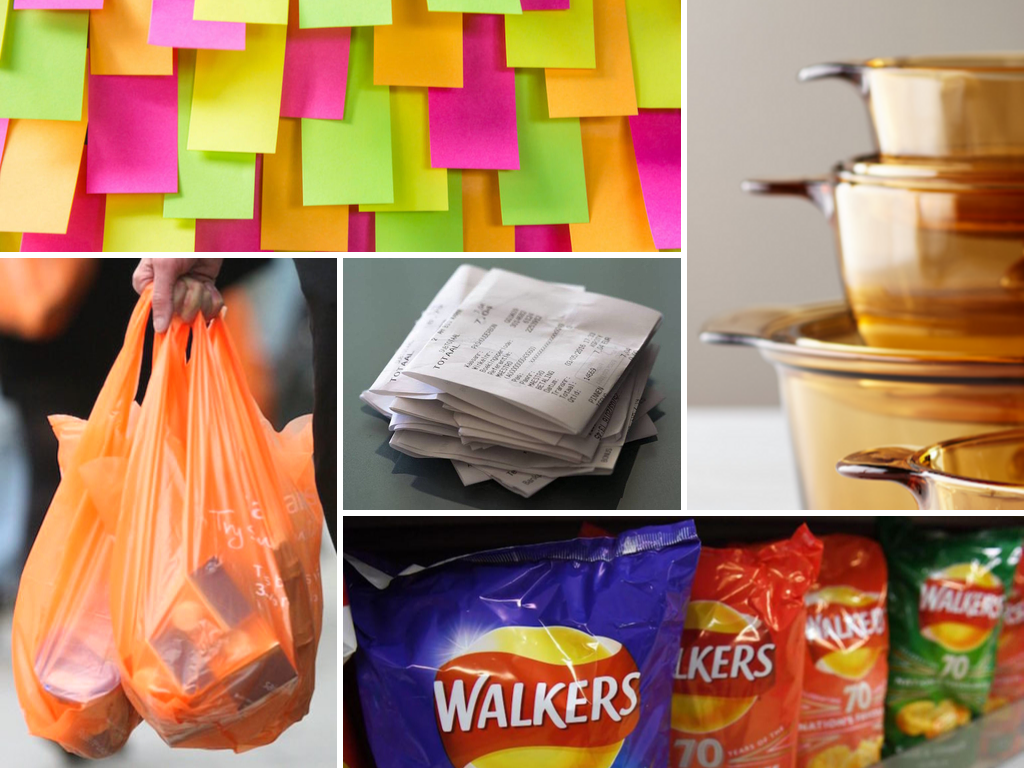5 Mins Read
Are you completely sure about what can and can’t be recycled? Sometimes, it just isn’t that straightforward. Here are some surprising things that you might have tossed in your curbside recycling bin before that actually shouldn’t be there.
Pyrex Glass
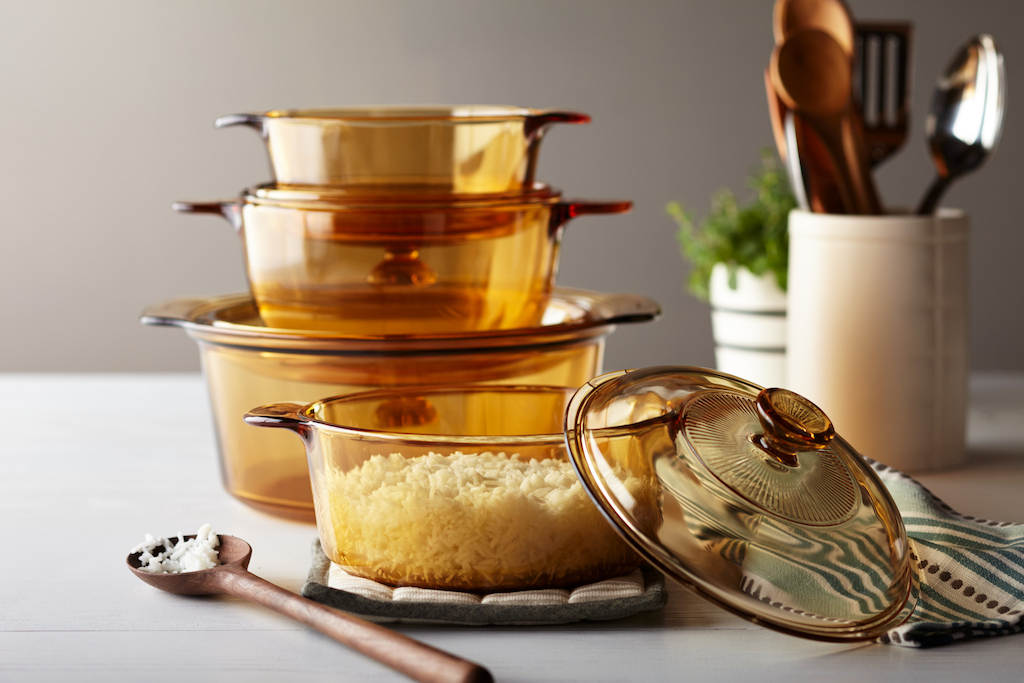
Pyrex glass – the type used for wine glasses and glass cookware – are different to the kind of glass that typical bottles and jars are made out of. They are non-recyclable because they are heat-treated so that they do not melt at the same temperature as other glass items. Most local facilities don’t take Pyrex in because these particular glass items accounts for only a small fraction of residual household waste, so there isn’t enough to warrant separate recycling collection infrastructure or facility to process it. In addition, while most glass is technically recyclable, broken glass cannot be thrown in your curbside recycling bin because it can injure collection workers.
READ: Glass Or Plastic – Which Is Better?
Post-Its & Other Sticky Notes
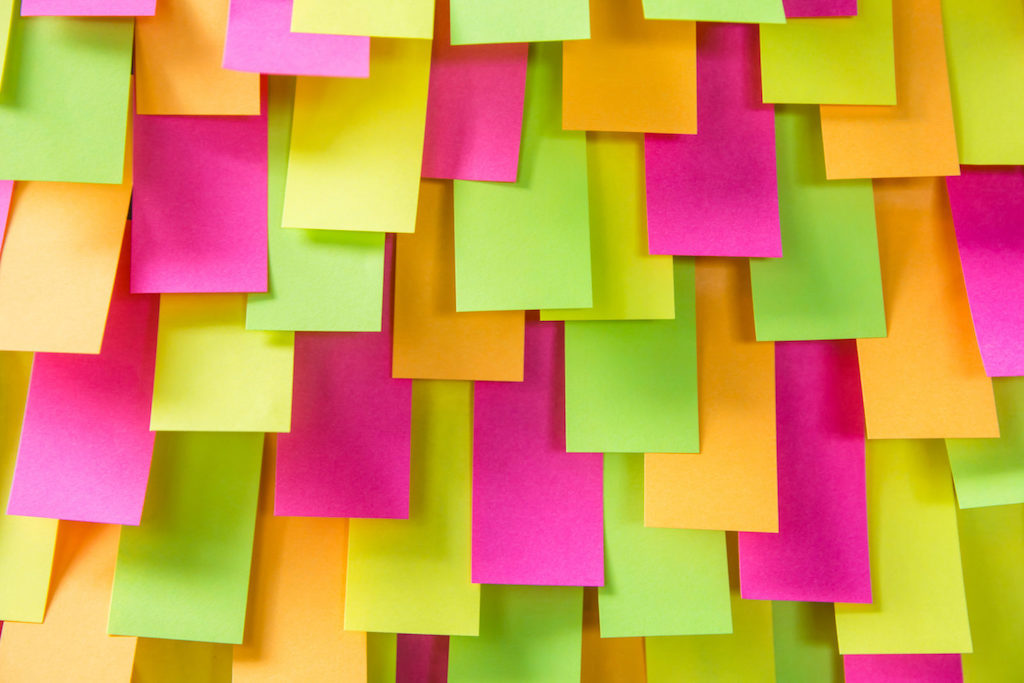
While post-its and other sticky notes come in handy for your to-do lists and reminders, they aren’t so great for recycling. Due to the glue on the adhesive strip, which cannot be properly removed in the recycling process, most paper mill centres cannot accept them for recycling. Paper recycling facilities can tolerate only tiny quantities of adhesive before the gum material starts to affect the final recycled product, such as the streaks produced on recycled newspaper. Sticky notes aside, most clean paper products without coatings, plastics or adhesives are recyclable.
Aerosol Cans
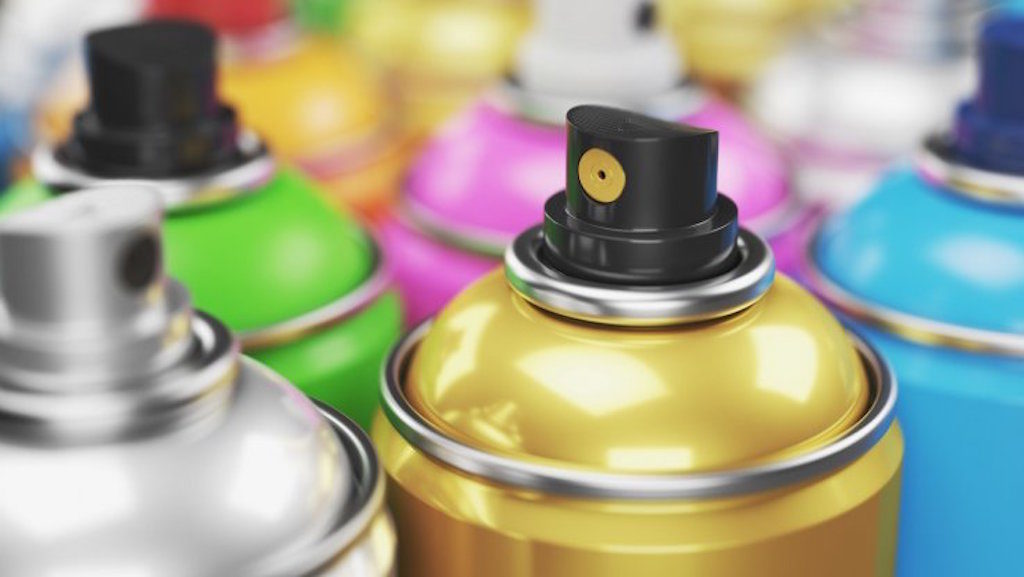
Aerosol cans are those containers typically used for hairspray, spray paint, shaving cream, insect repellent spray and cleaning spray products. Because they are pressurised, they are highly flammable and can pose a major safety concern for recycling centres. It is true that aerosol cans – when they are completely empty – are made from fully recyclable steel or aluminium. But because it is very difficult to empty them out fully, these cans often still contain hazardous waste, which is advised to remain out of the recycling bin. Perhaps it’s time to switch to a zero-waste natural deodorant instead!
Snack & Chip Bags
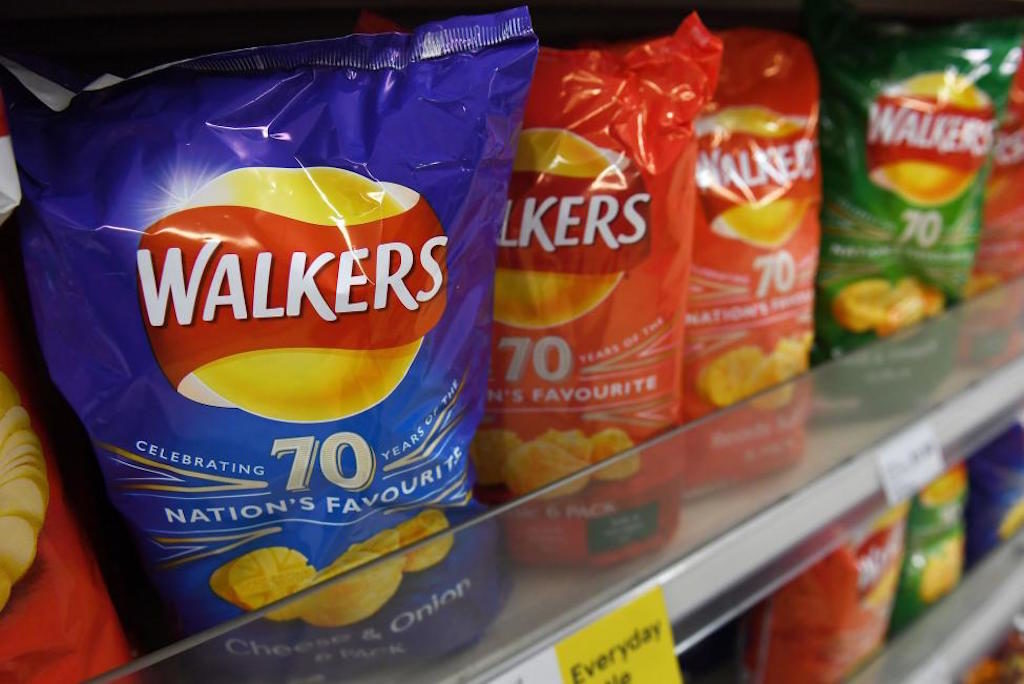
Really bad news for snackers. Those bags that hold your favourite snacks and chip cannot go in your single-stream recycling bin because they are often made from aluminium-laminated polypropylene. This shiny lining is a special mixed plastic-aluminium that cannot be separated by recycling plants. It’s probably best to purchase your snacks in a zero-waste store where you can bring your own containers, which admittedly for chip lovers is hard because in most bulk stores, that’s a blind spot in the product selection (because there are so few bulk chip makers).
READ: Best Bulk Food Stores In Hong Kong & Asia
Most Plastic Bags
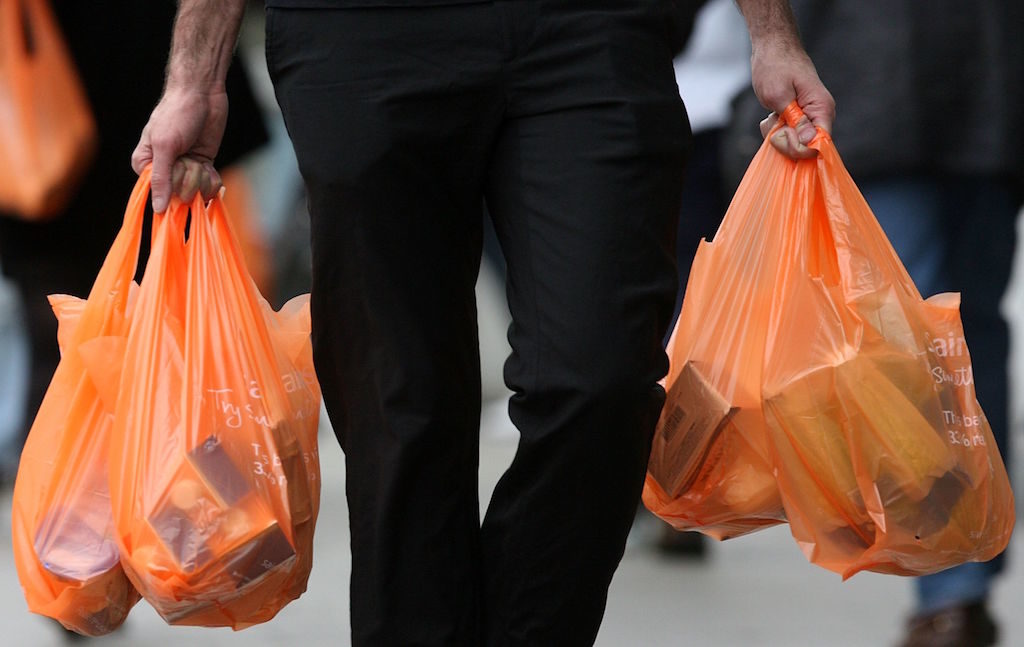
Plastic bags are a huge problem for our planet, from dissolving into microplastics that pollutes our oceans and waterways to killing wildlife. While some might say they are made out of recycled materials or are recyclable, most plastic bags are not recyclable because they plug up machinery at recycling plants. Some places might have special facilities to process non-rigid plastics, but it is best to check with your local council. To avoid this problem, eliminate the use of plastic bags altogether and use a reusable grocery bag!
Electrical & Extension Cords
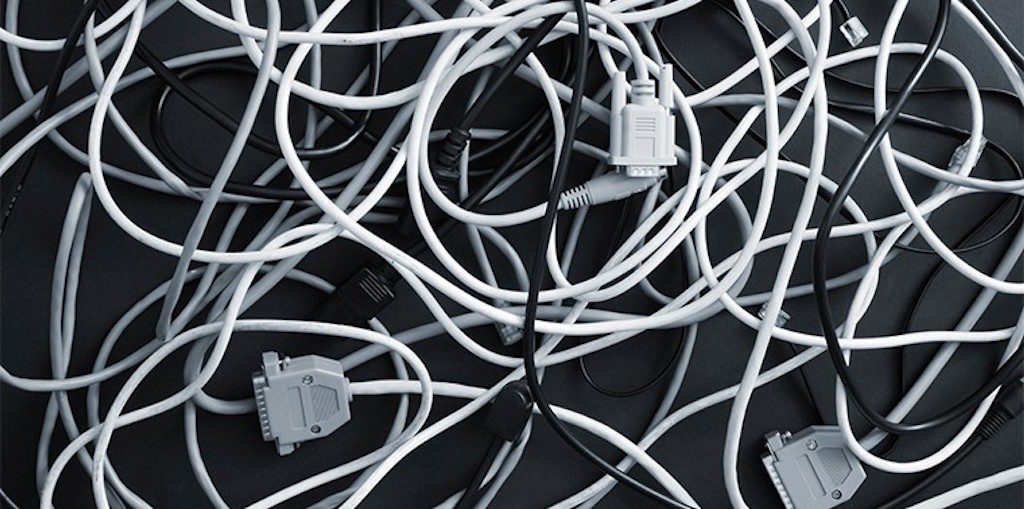
Electric cords and cables should never be recycled with other household recyclables because they can break recycling equipment and machines, and also pose a safety hazard to employees at the facility. They also pose a problem in normal bins – if not disposed of properly, e-waste can contaminate landfills. What you can recycle, however, is the bare electrical wiring itself, which can be recycled as scrap metal. Luckily, there are more “eco-friendly” cable varieties popping up that are halogen-free, so that they are less toxic when disposed.
Moulded Fibre Bowls
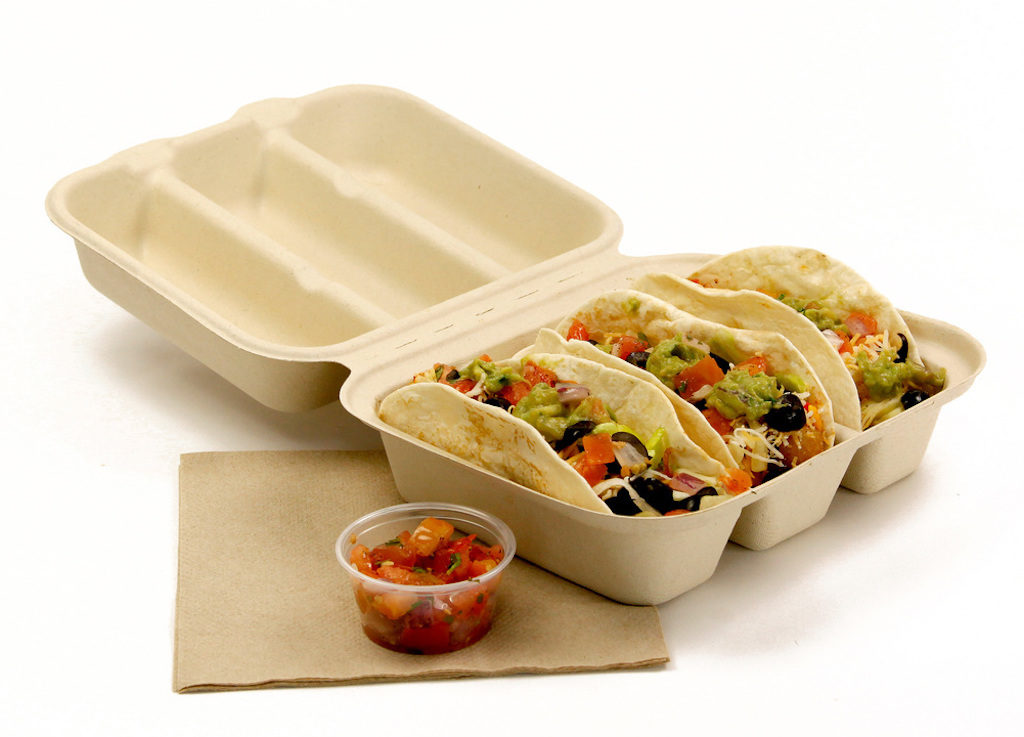
Those moulded fibre bowls marketed to you as a “greener” and “compostable” takeaway option? They’re not actually better for you, or for the environment. They are coated with a layer of PFAS, a class of man-made toxic chemicals, in order to keep these bowls from disintegrating. In a New Food Economy investigation, fibre bowls from 14 different restaurant locations in New York all tested positive for fluorine – indicative of PFAS treatment. This means that far from being recyclable, these products pollute compost, soil and water, and could even be harmful to your health.
READ: 10 Things To Know Before You Eat Out Of A “Compostable” Takeaway Bowl
Paper Receipts
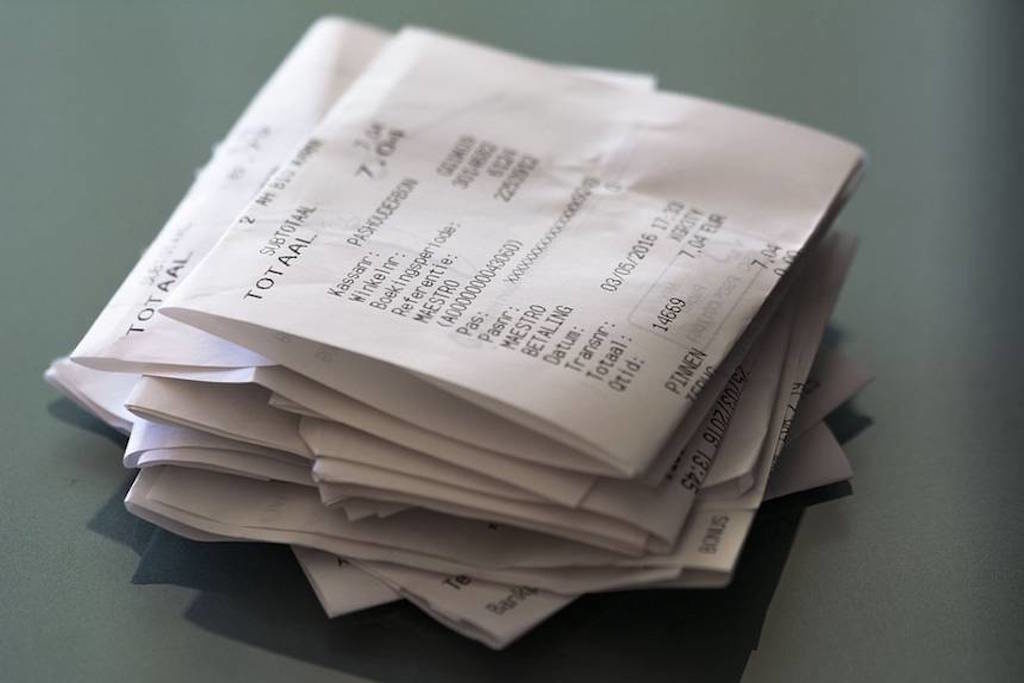
Did you know that most paper receipts cannot be recycled? Yes, they are made out of paper, but a shiny thermal kind that is coated in BPA or BPS, a common compound used in many commercial plastic products. These chemicals are not just harmful to the environment, but are toxic when ingested in large quantities – it has been associated with endocrine disruption amongst other health concerns. Opt to either ditch the receipt, or ask for it to be emailed or texted to you electronically.
READ: BPA & BPA-Alternatives Products Aren’t Safe For You
Lead image designed by Green Queen, all others as credited.

